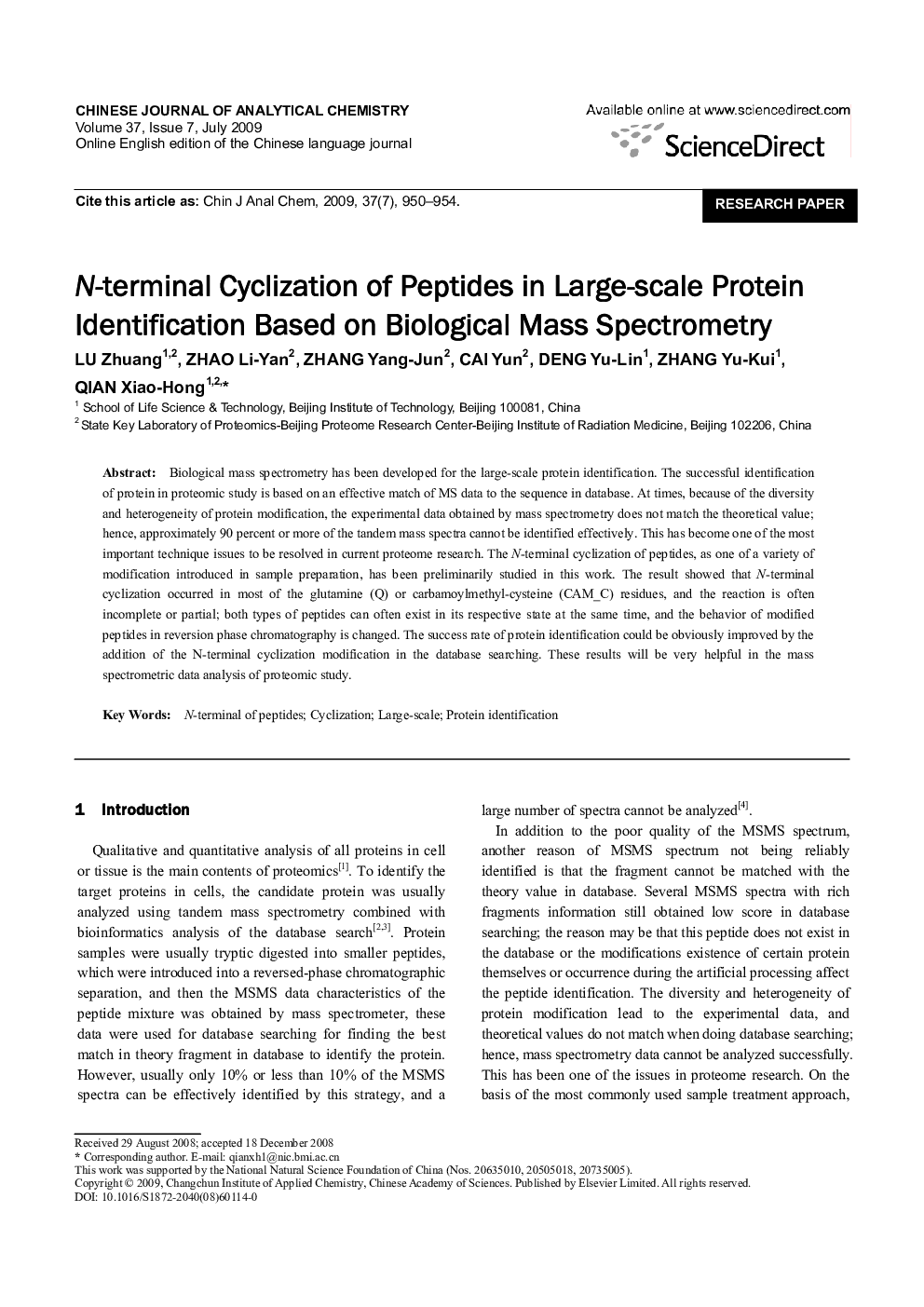| Article ID | Journal | Published Year | Pages | File Type |
|---|---|---|---|---|
| 1182279 | Chinese Journal of Analytical Chemistry | 2009 | 5 Pages |
Biological mass spectrometry has been developed for the large-scale protein identification. The successful identification of protein in proteomic study is based on an effective match of MS data to the sequence in database. At times, because of the diversity and heterogeneity of protein modification, the experimental data obtained by mass spectrometry does not match the theoretical value; hence, approximately 90 percent or more of the tandem mass spectra cannot be identified effectively. This has become one of the most important technique issues to be resolved in current proteome research. The N-terminal cyclization of peptides, as one of a variety of modification introduced in sample preparation, has been preliminarily studied in this work. The result showed that N-terminal cyclization occurred in most of the glutamine (Q) or carbamoylmethyl-cysteine (CAM_C) residues, and the reaction is often incomplete or partial; both types of peptides can often exist in its respective state at the same time, and the behavior of modified peptides in reversion phase chromatography is changed. The success rate of protein identification could be obviously improved by the addition of the N-terminal cyclization modification in the database searching. These results will be very helpful in the mass spectrometric data analysis of proteomic study.
